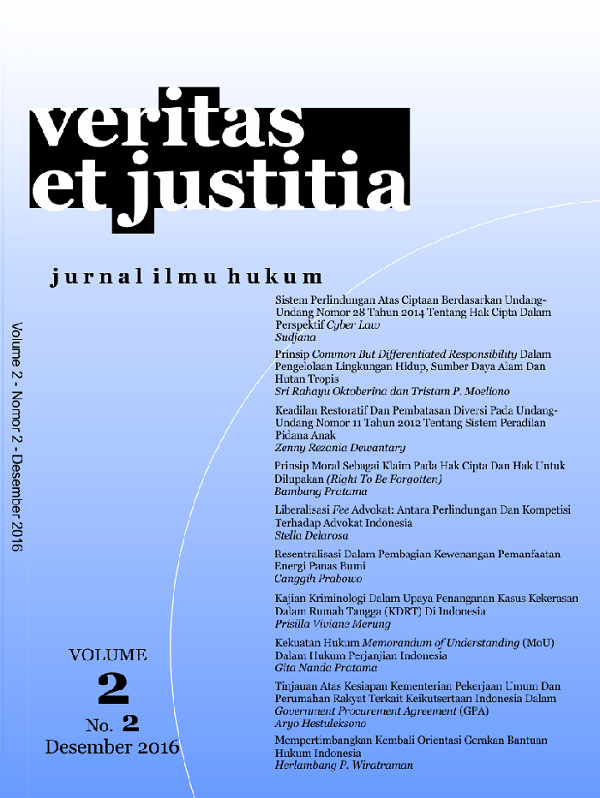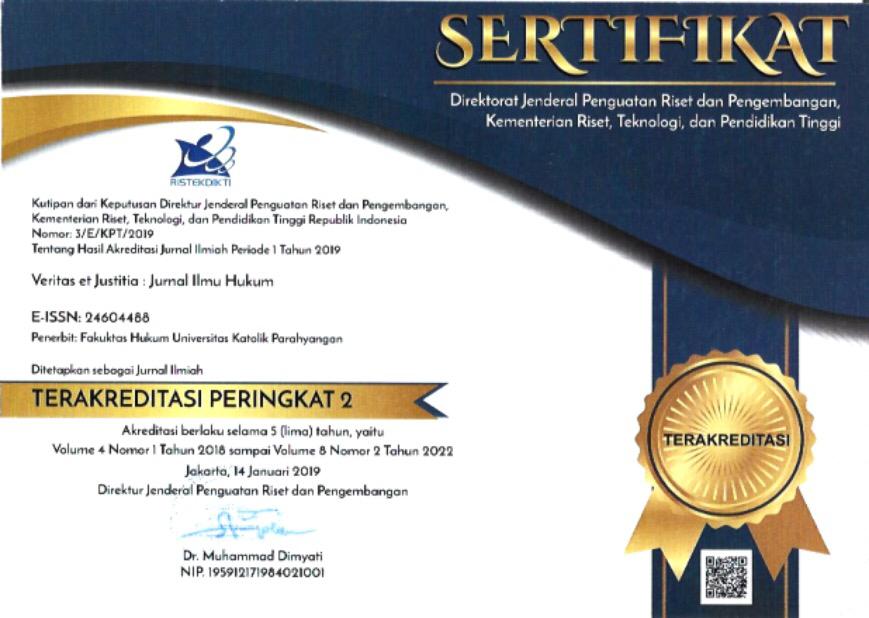Resentralisasi Dalam Pembagian Kewenangan Pemanfaatan Energi Panas Bumi
DOI:
https://doi.org/10.25123/vej.v2i2.2272Kata Kunci:
recentralization, full autonomy, distribution of authoritiesAbstrak
Abstract
The promulgation of Law no. 23 of 2014 re. Local Government, strengthening local government’s authority, is expected to provide a way out to the problem of how to harvest geothermal energy found in forest protected areas (within the jurisdiction of local government) to supply the increasing demand for electricity throughout Indonesia. For more than 10 years after the promulgation of Law no. 32 of 2004, the central government program to accelerate the utilization of geothermal energy source found within protected forest zones had come to a full stop. This article discusses the issue of how government authority (central-local) related to the above problem had been distributed and the existing tension between central-local government. The central government tendency to take back authorities previously granted to local authorities defies the whole effort at making government more accountable, efficient and prevention of externalities.##submission.downloads##
Diterbitkan
Terbitan
Bagian
Lisensi
Authors who publish with this journal agree to the following terms:
Authors retain copyright and grant the journal right of first publication with the work simultaneously licensed under a Creative Commons Attribution License that allows others to share the work with an acknowledgement of the work's authorship and initial publication in this journal.
Authors are able to enter into separate, additional contractual arrangements for the non-exclusive distribution of the journal's published version of the work (e.g., post it to an institutional repository or publish it in a book), with an acknowledgement of its initial publication in this journal.
Authors are permitted and encouraged to post their work online (e.g., in institutional repositories or on their website) prior to and during the submission process, as it can lead to productive exchanges, as well as earlier and greater citation of published work.
The Journal allow the author(s) to hold the copyright and to retian publishing rights without restrictions.










